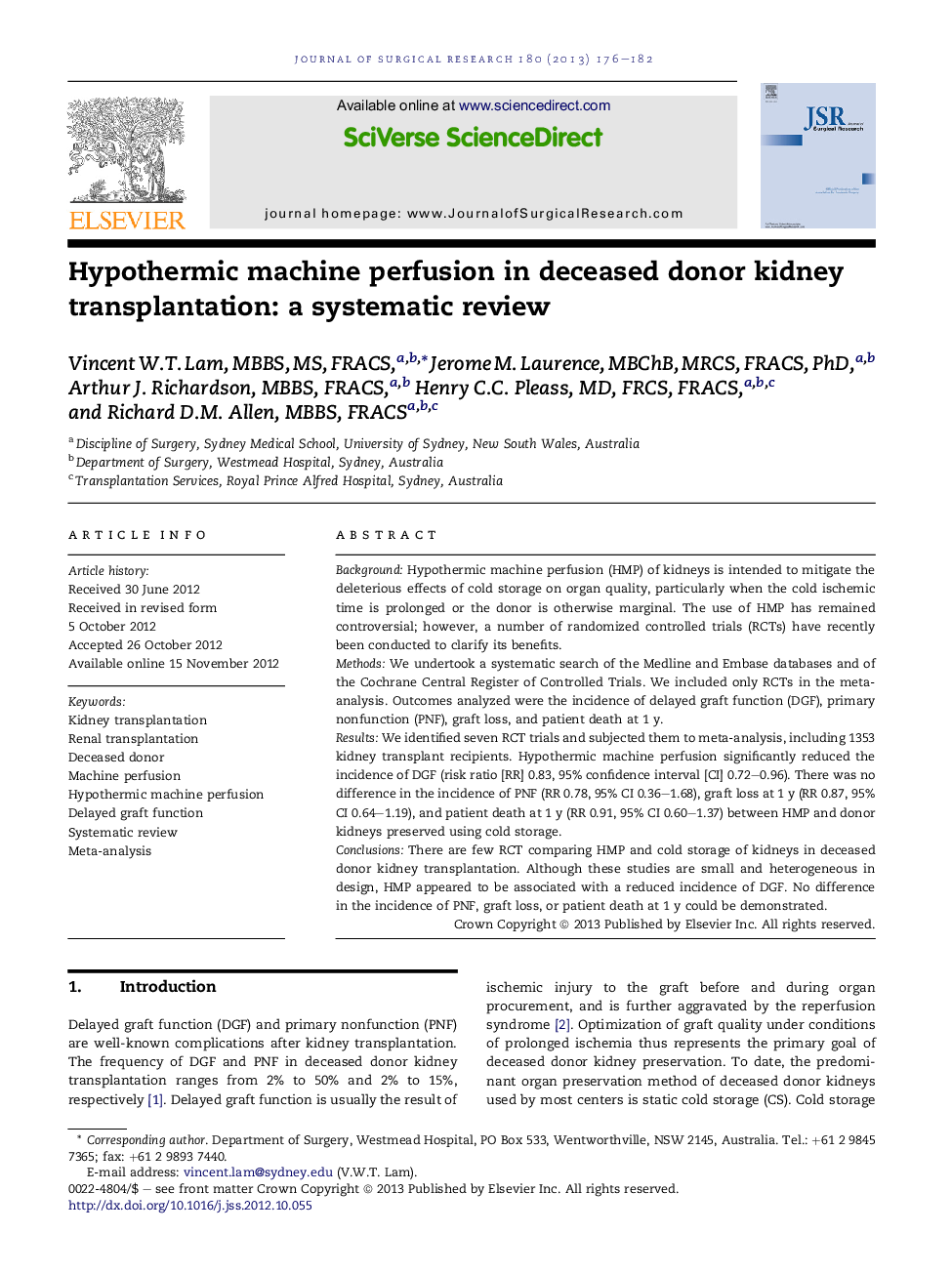| Article ID | Journal | Published Year | Pages | File Type |
|---|---|---|---|---|
| 4301190 | Journal of Surgical Research | 2013 | 7 Pages |
BackgroundHypothermic machine perfusion (HMP) of kidneys is intended to mitigate the deleterious effects of cold storage on organ quality, particularly when the cold ischemic time is prolonged or the donor is otherwise marginal. The use of HMP has remained controversial; however, a number of randomized controlled trials (RCTs) have recently been conducted to clarify its benefits.MethodsWe undertook a systematic search of the Medline and Embase databases and of the Cochrane Central Register of Controlled Trials. We included only RCTs in the meta-analysis. Outcomes analyzed were the incidence of delayed graft function (DGF), primary nonfunction (PNF), graft loss, and patient death at 1 y.ResultsWe identified seven RCT trials and subjected them to meta-analysis, including 1353 kidney transplant recipients. Hypothermic machine perfusion significantly reduced the incidence of DGF (risk ratio [RR] 0.83, 95% confidence interval [CI] 0.72–0.96). There was no difference in the incidence of PNF (RR 0.78, 95% CI 0.36–1.68), graft loss at 1 y (RR 0.87, 95% CI 0.64–1.19), and patient death at 1 y (RR 0.91, 95% CI 0.60–1.37) between HMP and donor kidneys preserved using cold storage.ConclusionsThere are few RCT comparing HMP and cold storage of kidneys in deceased donor kidney transplantation. Although these studies are small and heterogeneous in design, HMP appeared to be associated with a reduced incidence of DGF. No difference in the incidence of PNF, graft loss, or patient death at 1 y could be demonstrated.
